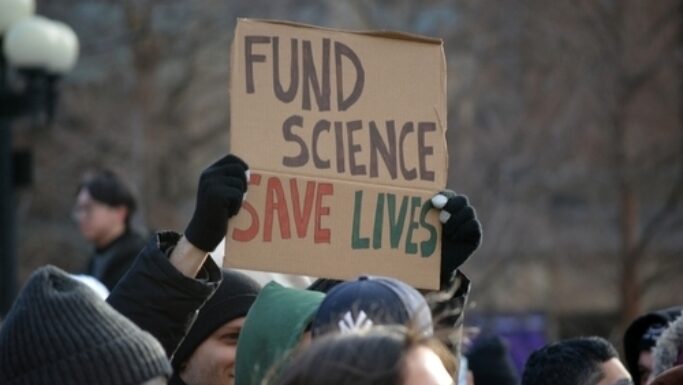
An edict issued without warning in February 2025 by the National Institutes of Health (NIH), having the effect of slashing funding by the NIH across the board, has been put on a nationwide hold for now by a federal court in Massachusetts.
The edict affects billions of dollars of grant money. According to the court order in Massachusetts v. National Institutes of Health, the NIH in 2023 made more than $35 billion in grants— nearly 60,000 competitive grants to more than 300,000 researchers, primarily at public and private colleges and universities, and other non-governmental research institutions.
The NIH edict slashed its funding commitments by limiting the indirect costs permitted in a grant to 15% of the direct costs. Direct costs are those that are attributed to a specific research project (such as materials and supplies for the project), while indirect costs are expenses such as building construction and maintenance, utilities, laboratory equipment maintenance, and faculty and staff employed across multiple research projects. Before the edict, each institution getting a grant had negotiated its indirect cost rate with the appropriate federal agency, and that rate would apply to every federal agency interacting with the institution. So if the institution had an indirect cost rate of 30%, and the grant would be for $100 thousand, then besides the grant money, the institution would get reimbursement of $30 thousand for its indirect costs.
In 2017, the first Trump Administration released a budget proposal that would have slashed the indirect cost rate to a uniform, across-the-board rate of 10%. In direct response, in 2018 Congress passed an appropriations rider to prevent this change. This law remains in effect today, continued by a series of riders in subsequent appropriations bills.
Although under law the negotiated indirect cost rate is binding on every federal agency throughout the life of the grant, the edict would slash all existing grants and all new grants going forward by imposing the 15% limit on indirect costs. The edict was challenged by attorneys general from 22 states, five medical associations and 17 education associations and universities.
In an opinion by Judge Angel Kelley, the court granted a nationwide preliminary injunction against the edict, finding that it is arbitrary and capricious and “fails to demonstrate a rational connection between the facts and choice that was made.” The court noted that “the Notice fails . . . to recognize or consider the substantial reliance interests at issue,” since the institutions receiving grants had relied on the NIH practices in planning and budgeting for their research and clinical trials.
The court also held that the edict is a legislative rule that violates the Administrative Procedure Act, in that that NIH was required to submit the Rate Change Notice to notice-and-comment rulemaking. Additionally, the legislative rule was held to be impermissibly retroactive.
After weighing the equities of the situation, the opinion grants a nationwide preliminary injunction against the edict.
President Trump has demonstrated his relish for governing by edict, as evidenced by a wide range of executive orders, such as the executive order “Protecting the Meaning and Value of American Citizenship” which, in violation of the 14th amendment, denies U.S. birthright citizenship to all children born on or after February 19, 2025 on U.S. soil who do not have at least one parent who is a U.S. citizen or lawful permanent resident. Because the Congress has shown little willingness to intervene against such edicts, only the judiciary stands in the way of their enforcement.
The NIH edict will almost certainly reach the appellate court and likely the U.S. Supreme Court. Hopefully, the judiciary will continue to uphold the rule of law and stand in the way of the edict, but that remains to be seen.
Regardless of the fate of this injunction, the Trump administration may find other ways to curtail indirect costs in NIH grants. First, the Congressional rider first adopted in 2018 prohibiting a blanket limit on indirect costs may be reversed in a 2025 appropriations bill. Second, the administration may push to issue numerous, more targeted restrictions on indirect costs, taking the position that such actions do not amount to rule-making with its attendant procedural requirements. Finally, it may simply withhold funds to grantees, challenging the authority of the courts to compel the release of funds. Thus, recipients of NIH grants should be prepared for a long, difficult battle, regardless of the outcome of any appeals of this injunction.